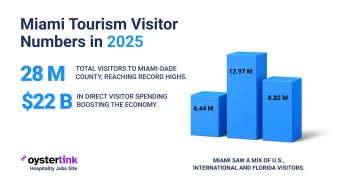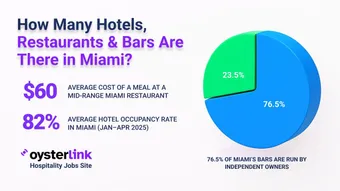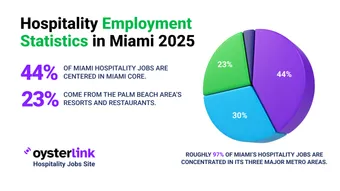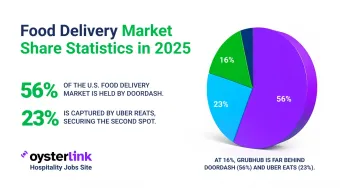Topeka, Kansas Cost of Living: Quick Takeaways
- Housing Costs: The average rent for a one-bedroom apartment in Topeka reached approximately $1,168 in 2025, showing a steady rise over the past 15 years.
- Transportation Expenses: Public transit and fuel costs are relatively affordable, with a one-way public transit fare around $1.50 and fuel priced at $2.79 per gallon.
- Healthcare Costs: Monthly health insurance premiums are around $650 for Silver plans, which is higher than the national average by about 13%.
- Income Levels: Median household income in Topeka is projected to be about $57,000 in 2025.
Topeka, Kansas presents an affordable living environment compared to many U.S. cities, with housing and transportation costs below the national average.
This article offers a detailed breakdown of various cost of living components in Topeka for 2025 to help residents and newcomers understand the financial landscape.
1. Housing Costs in Topeka
Housing accounts for a large portion of living expenses in Topeka. Here is a historical overview of average rent prices for a one-bedroom apartment:
- 2010: Approximately $600
- 2015: Around $700
- 2020: About $800
- 2024: Reached $947
- 2025: Estimated at $1,168
The rental market shows consistent growth reflecting demand and inflation factors in housing.
Employers in the hospitality sector often consider local housing costs when determining salaries and benefits to attract quality staff. For strategies on restaurant staff hiring, understanding such economic factors is critical.
2. Homeownership and Real Estate Trends in Topeka
For those considering homeownership, the median home price has evolved as follows:
- 2010: Median home price was roughly $100,000
- 2015: Rose to about $120,000
- 2020: Increased to $140,000
- 2024: Valued near $197,713
- 2025: Projected around $212,800
This reflects moderate appreciation and a growing real estate market in Topeka over the years.
3. Transportation Expenses in Topeka
Transportation costs in Topeka are affordable, influenced by the following factors:
- Public Transit: One-way fare is about $1.50, with monthly passes costing around $50
- Fuel Costs: Average price per gallon is roughly $2.79
- Vehicle Maintenance: Annual maintenance costs near $1,000
These figures make commuting in Topeka manageable compared to larger urban centers.
4. Utility Costs in Topeka
Typical monthly utility costs for a standard home include:
- Electricity: $178.29 per month
- Internet Services: $50.00 monthly
- Total Utilities: Approximately $228.29 monthly
Utility expenses reflect moderate rates and usage consistent with the region.
5. Grocery and Food Expenses in Topeka
Grocery costs per person average around $250 each month in Topeka.
Dining out costs vary with casual meals at approximately $12 and mid-range restaurant meals around $40.
Restaurants looking to attract top talent for culinary and service roles can benefit from reviewing guides on restaurant management styles and operational costs.
6. Healthcare Costs in Topeka
Healthcare expenses include:
- Employer-sponsored health insurance premiums average $150 monthly
- Silver plan premiums are near $650 monthly
These costs are higher than the national average healthcare expenses by approximately 13%, which is important for residents to consider.
7. Educational Expenses in Topeka
Education opportunities and costs include:
- Public Schools: Free as funded by state taxes
- Private Schools: Average tuition around $8,000 annually
- In-State University Tuition: Estimated at $10,000 per year
Educational costs vary considerably depending on choice of institution and program.
8. Entertainment and Leisure in Topeka
Topeka offers affordable entertainment options such as:
- Movie Tickets: Roughly $10 each
- Gym Memberships: Average $30 per month
- Meals at Mid-Range Restaurants: About $40
Annual spending on entertainment and personal care services generally total $2,600 combined.
9. Taxes and Miscellaneous Fees in Topeka
Important tax information for residents includes:
- State Income Tax: Sliders from 3.1% to 5.7%
- Sales Tax: Combined rate around 9.15%
- Property Tax Rate: Approximately 1.33%
These taxes impact take-home income and property ownership costs significantly.
10. Childcare and Family Expenses in Topeka
Family-related costs include:
- Daycare fees average $800 monthly
- After-school program costs about $200 monthly
- Extracurricular activities roughly $100 monthly
Planning for childcare is essential for families budgeting expenses in Topeka.
11. Clothing and Personal Care in Topeka
Monthly expenses for clothing and personal care are typically:
- Clothing: Around $100
- Personal Care Products and Services: Estimated $50
These figures represent moderate spending in line with regional norms.
12. Insurance Costs in Topeka
Insurance premiums are a vital component of living costs:
- Health Insurance: Around $650 monthly for Silver plans
- Auto Insurance: Annual premium roughly $1,200
- Homeowners Insurance: About $1,000 annually
- Renters Insurance: Approximately $200 annually
These costs provide essential coverage and financial protection.
13. Miscellaneous Expenses in Topeka
Additional yearly expenditures include:
- Entertainment: Approximately $2,000 annually
- Personal Care Services: Around $600 annually
- Miscellaneous Goods and Services: Close to $500 annually
These expenses cover lifestyle and personal needs beyond basics.
14. Income and Salaries in Topeka
Median household incomes have shifted over the years:
- 2010: About $45,000
- 2015: Increased to $50,000
- 2020: Near $54,052
- 2023: Approximately $55,902
- 2025: Projected at $57,000
Income growth remains gradual though steady, matching local economic conditions.
Hospitality businesses aiming to remain competitive should consider local salary standards. For detailed insights into positions like restaurant manager salaries and other key roles, reviewing comprehensive salary data helps employers make informed compensation decisions.
15. Comparison with National Averages
Compared to nationwide figures, Topeka's cost of living trends are as follows:
- Overall Cost of Living: About 14% below the national average
- Housing: Approximately 26% lower than national average
- Utilities: Roughly 7% less expensive
- Food: Around 4% lower
- Healthcare: Approximately 13% higher than average
- Transportation: About 14% cheaper
- Goods and Services: Nearly 13% less expensive
These factors make Topeka an affordable city with some exceptions, especially healthcare.
Our Methodology for Topeka Cost of Living Figures
We compile data from reputable sources including government statistics, surveys, and expert market analysis.
Where specific data points are unavailable, we provide estimates based on regional trends and comparable cities.
This comprehensive approach ensures an accurate portrayal of Topeka's cost of living in 2025.
For employers in hospitality interested in hiring trends, understanding regional economic factors can be enhanced by resources such as restaurant staff hiring and workforce management strategies.
Topeka, Kansas Cost of Living: Conclusion
Topeka offers a cost of living distinctly lower than national averages, with affordable housing and transportation options.
Higher healthcare costs are offset by lower expenses in areas like utilities and groceries, making Topeka a well-balanced choice for many residents.
By understanding these costs, people can make informed decisions about living and working in Topeka, ensuring sound financial planning and lifestyle satisfaction.




